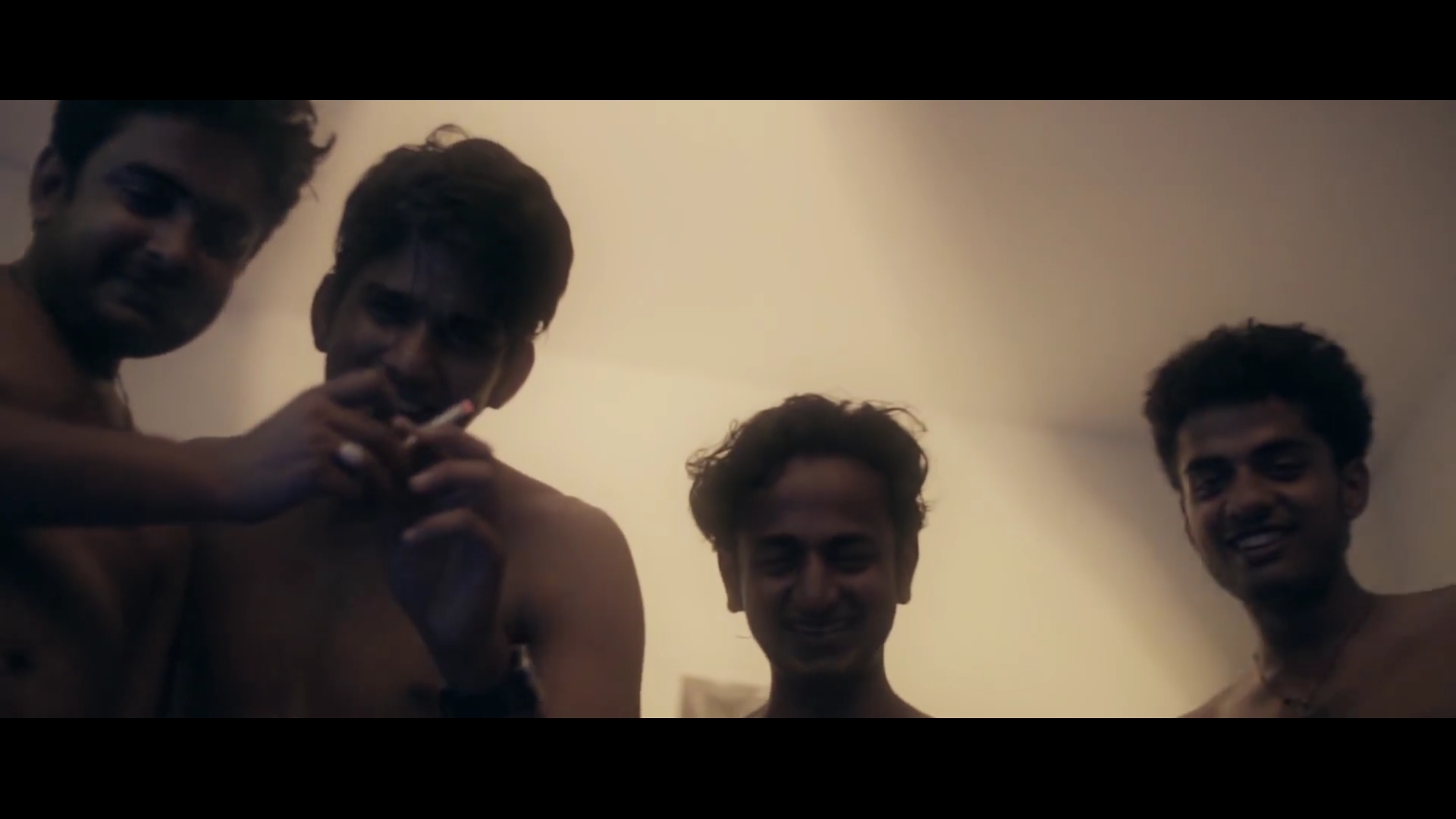Imagine this – a story so chilling it sends shivers down your spine. The Junko Furuta case is one of the most disturbing criminal cases in modern Japanese history, and its impact continues to resonate even today. This case isn't just a tale of horror; it's a reminder of the darkness that can lurk in human nature. Let's dive deep into this dark chapter, uncovering every layer of this shocking incident.
When people talk about crime, they often think of murders or thefts. But the Junko Furuta case is something else entirely. It’s not just about a crime; it’s about the brutality, the psychology behind it, and the long-lasting effects it had on society. This case shook Japan to its core and sparked massive debates about school bullying, juvenile justice, and societal responsibility.
Before we dive into the details, let's set the stage. This case happened back in 1988, and it's a story that will leave you questioning humanity itself. It’s one of those stories that, once you hear it, you can’t unhear it. So buckle up because we're about to take a deep dive into a world where innocence meets the darkest corners of human behavior.
- Revolutionizing Iot Device Management Exploring Remoteiot And Its Impact On The Tech Landscape
- Jameliz Benitez Smith A Rising Star In The Adult Entertainment Industry
Understanding the Background of the Junko Furuta Case
The Junko Furuta case isn’t just a crime story; it’s a complex web of bullying, abuse, and eventual murder. Junko Furuta was a 16-year-old high school student from Tokyo, and her life took a tragic turn when she was abducted by three classmates. This wasn’t just a random act of violence; it was a carefully orchestrated nightmare that lasted for over a month.
These three boys, who were also high school students, kidnapped Junko after a heated argument in their school. What started as a simple fight escalated into something far more sinister. The boys took Junko to an abandoned building, where they held her captive for 44 days. During this time, she endured unimaginable torture and abuse. The details are so harrowing that they remain shocking even decades later.
Why This Case Stands Out
This ain't your average crime story, folks. The Junko Furuta case stands out because of the sheer brutality involved. It wasn’t just about killing someone; it was about the systematic degradation of a human being. The three perpetrators were only 17 years old at the time, which raises important questions about juvenile justice and accountability.
- Alice Rosenblum Navigating The Complex Landscape Of Digital Content Creation
- Unmasking Bolly4u The Risks And Rewards Of Bollywoods Unauthorized Streaming Giant
- The case highlighted the dark side of school bullying in Japan.
- It exposed the flaws in the Japanese juvenile justice system.
- It sparked nationwide discussions about the role of society in protecting its youth.
Think about it – three teenagers with no prior criminal records committing such a heinous act. How does that happen? What drives someone to such extremes? These are questions that continue to haunt Japan and the world at large.
The Role of School Bullying in the Junko Furuta Case
School bullying is a serious issue in Japan, and the Junko Furuta case brought it to the forefront. Junko was reportedly bullied by her classmates before the abduction, which may have contributed to the events that followed. This case isn’t just about three boys gone bad; it’s about a culture of bullying that thrives in silence.
Bullying in Japanese schools often takes the form of psychological abuse, social exclusion, and sometimes physical violence. In Junko’s case, it seems like the bullying escalated into something far more sinister. The perpetrators reportedly targeted Junko because she stood up to them, which is a pattern often seen in bullying cases.
How Bullying Contributed to the Crime
The bullying aspect of this case is crucial because it sheds light on the mindset of the perpetrators. They didn’t see Junko as a person; they saw her as an object of their frustration and anger. This dehumanization is a common thread in many bullying-related crimes.
- Bullying creates a toxic environment where violence becomes normalized.
- It erodes empathy and compassion in young people.
- It can lead to severe mental health issues for both the victims and the perpetrators.
Experts believe that the bullying culture in Japanese schools needs to be addressed urgently. This case serves as a stark reminder of the consequences of ignoring the issue.
The Perpetrators: Who Were They?
Let’s talk about the three boys involved in this case. They were all high school students, just like Junko, and they came from relatively normal backgrounds. So, what drove them to commit such a horrific act? Was it peer pressure, a lack of moral compass, or something deeper?
One of the boys, identified as K, was the ringleader. He was known for his aggressive behavior and had a history of getting into fights. The other two, identified as T and N, followed his lead. They were all from middle-class families and had no prior criminal records. This makes the case even more puzzling – how do seemingly normal kids turn into monsters?
Psychological Profiles of the Perpetrators
Psychologists have tried to understand the mindset of these boys, and the findings are fascinating yet disturbing. Here’s what they uncovered:
- K had a severe lack of empathy and a need for control.
- T and N were more passive, following K’s lead out of fear or loyalty.
- All three showed signs of dehumanizing their victim, seeing her as less than human.
Understanding the psychology behind their actions is crucial in preventing similar cases in the future. It’s not just about punishing the perpetrators; it’s about addressing the root causes of such behavior.
The Legal Aftermath: Juvenile Justice in Japan
When the case went to court, it sparked a massive debate about the Japanese juvenile justice system. The three boys were tried as juveniles, which meant they couldn’t be sentenced to death. Instead, they received life sentences, which was controversial given the severity of their crime.
This case highlighted the flaws in the system, particularly the leniency towards juvenile offenders. Many people argued that the punishment didn’t fit the crime, and that the system failed to hold the boys accountable for their actions.
Reforms in the Juvenile Justice System
Following the Junko Furuta case, Japan made significant changes to its juvenile justice system. Here are some of the reforms:
- Lowering the age of criminal responsibility.
- Introducing harsher penalties for serious crimes committed by juveniles.
- Increasing transparency in juvenile court proceedings.
These changes were necessary to ensure that justice is served fairly and that victims receive the closure they deserve. The case also prompted discussions about restorative justice and rehabilitation for juvenile offenders.
The Impact on Society
The Junko Furuta case had a profound impact on Japanese society. It forced people to confront uncomfortable truths about bullying, juvenile crime, and societal responsibility. The case became a catalyst for change, inspiring numerous reforms and initiatives aimed at preventing similar tragedies in the future.
One of the most significant impacts was the increased awareness about school bullying. Schools began implementing stricter anti-bullying policies, and parents became more involved in their children’s lives. The case also prompted discussions about mental health and the importance of addressing emotional issues in young people.
Lessons Learned from the Case
So, what can we learn from the Junko Furuta case? Here are a few key takeaways:
- Bullying is a serious issue that needs to be addressed proactively.
- Juvenile offenders must be held accountable for their actions.
- Society has a responsibility to protect its youth and provide them with the support they need.
These lessons are as relevant today as they were back in 1988. The case serves as a reminder that we must remain vigilant in our efforts to create a safer, more compassionate world.
The Legacy of Junko Furuta
Junko Furuta’s legacy lives on in the changes her case inspired. Her story is a tragic one, but it has also become a catalyst for positive change. The case brought attention to issues that were once swept under the rug, and it sparked conversations that needed to happen.
Every year, people remember Junko and the injustice she faced. Her story is a reminder of the importance of empathy, compassion, and justice. It’s a call to action for all of us to do better – to be better – and to ensure that no one else has to suffer the way Junko did.
Honoring Junko’s Memory
Honoring Junko’s memory means continuing the work she started, even if she didn’t know it at the time. It means standing up against bullying, supporting victims of crime, and advocating for a fair and just society. It means having difficult conversations and making tough decisions. It means never forgetting the lessons of the past.
As we reflect on Junko’s story, let’s commit to making the world a better place. Let’s work together to create a society where every person is treated with dignity and respect. That’s the best way to honor her memory.
Conclusion: Reflecting on the Junko Furuta Case
As we wrap up this deep dive into the Junko Furuta case, it’s important to reflect on what we’ve learned. This case isn’t just a story of horror; it’s a story of hope and resilience. It’s a story of how one tragedy can inspire positive change. Junko’s story is a reminder that we must remain vigilant in our efforts to create a better world.
We’ve explored the background of the case, the role of bullying, the psychology of the perpetrators, the legal aftermath, and the impact on society. Each of these elements adds to the complexity of the story, and each offers valuable lessons for the future.
So, what can you do? Share this article with others. Start conversations about bullying and juvenile justice. Support organizations working to prevent similar tragedies. Together, we can make a difference.
Table of Contents
- Understanding the Background of the Junko Furuta Case
- The Role of School Bullying in the Junko Furuta Case
- The Perpetrators: Who Were They?
- The Legal Aftermath: Juvenile Justice in Japan
- The Impact on Society
- The Legacy of Junko Furuta
- Honoring Junko’s Memory
- Conclusion: Reflecting on the Junko Furuta Case
- Shilpa Sethi Redefining Beauty And Influence In The Digital Age
- The Heartwarming Journey Of The Viral Cctv Incident A Closer Look At The Bond Between Buscar Kid And His Mom


